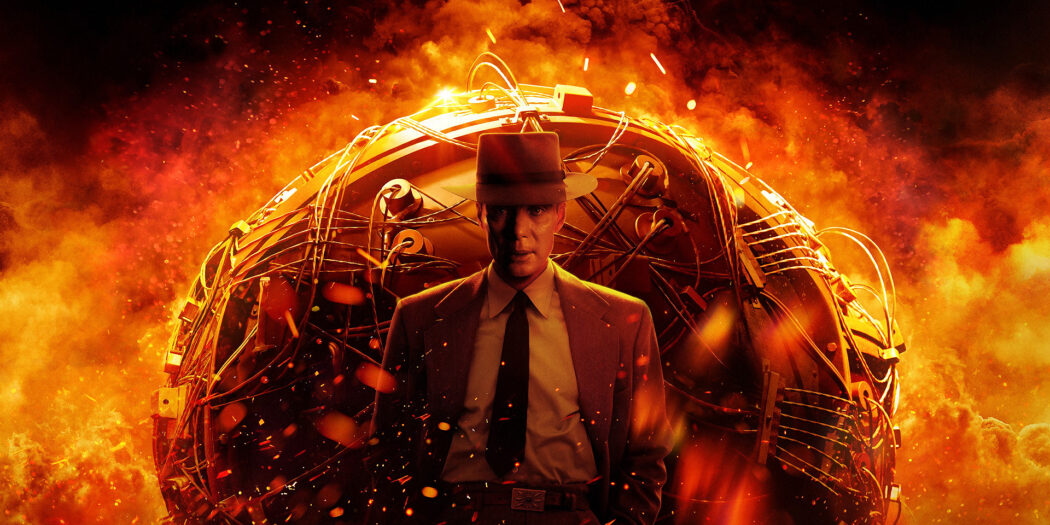Christopher Nolan’s films feel like jazz symphonies. There’s a rhythm to them. Scenes build on one another in such a way that creates an almost hypnotic quality. This is achieved mainly through his non-linear storytelling, cross-cutting scenes at different times, and sound and music. Nolan often employs editing to manipulate time, perspective, and information to replicate the characters’ psychological states. He uses editing techniques, especially in this film, to fuse his characters’ subjective experiences with the audience’s objective reality, creating an immersive, shared experience. Probably none of his films better demonstrate his main character’s psychological distress than Oppenheimer. While there are some flaws, overall, Oppenheimer is a taut, heart-wrenching experience. The showcase of 20-25 minutes of the film leading up to the first test of the atomic bomb is some of the most impressive filmmaking I’ve seen in a long time.

The film tells much of the life of J. Robert Oppenheimer, known as “the father of the atomic bomb.” It revolves around his involvement in the Manhattan Project’s Los Alamos Laboratory, where he played a pivotal role in developing the first nuclear weapons during World War II. The movie is based on the acclaimed book American Prometheus: The Triumph and Tragedy of J. Robert Oppenheimer, co-authored by Kai Bird and the late Martin J. Sherwin, who dedicated over two decades to their research for the Pulitzer Prize-winning publication. It doesn’t get bogged down in your typical biopic beats, though, and the film is more about making the atomic bomb. Fundamentally, the movie delves into the themes of urgency and responsibility. It portrays how Oppenheimer took the lead in the urgent development of the atomic bomb during World War II. The United States raced against Germany with high stakes to create this revolutionary and world-altering weapon. The film captures the gravity of the situation and the weight of responsibility on Oppenheimer’s shoulders as he played a crucial role in shaping history. It’s told in three different timelines, all intersecting as many Nolan films do to create a momentous narrative.
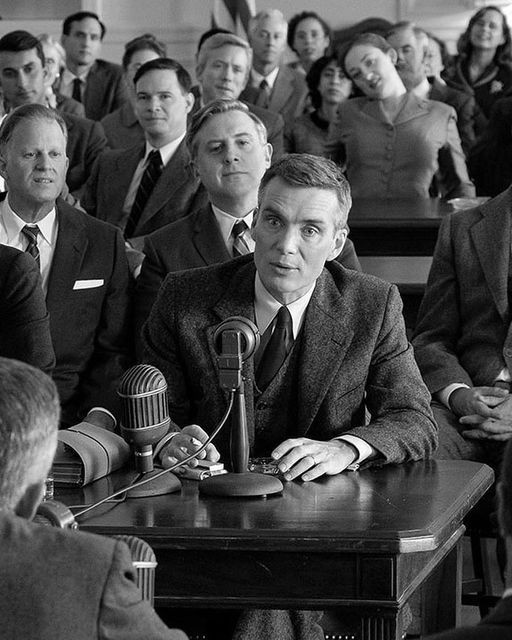
For Cillian Murphy, who plays Robert Oppenheimer, this is the culmination of a 20+ year career that’s seen the actor admired but mainly on the sidelines besides the hugely popular tv series Peaky Blinders. This performance should finally get him an Oscar nomination and maybe even a win. The supporting cast delivers outstanding performances. Robert Downey Jr.’s impressive return to top-notch acting and Florence Pugh’s captivating presence is particularly notable, contributing to the film’s success. Emily Blunt as Kitty Oppenheimer is also fantastic. She has a scene near the end that should secure an Oscar nomination. The on-screen chemistry among the actors is undeniable, elevating the overall storytelling experience to new heights. There are so many impressive performances it’s hard to summarize them all. Still, notably, a cameo by Casey Affleck as rabid anti-communist Colonel Boris Pash left a significant impression on me.
Politically the film gives a more nuanced humanistic portrayal of communists than many Hollywood films. Most importantly, the film is anti-bomb. There’s a disturbing realization in the film that dropping two atomic bombs on Japan was unnecessary and amoral. There’s a chilling scene halfway through with the nation’s top military brass and Oppenheimer discussing where to drop the atomic bomb. James Remar’s Henry Stimson casually mentions not dropping one on Kyoto because he and his wife visit there. There are many chilling lines like this, including in the same scene Matt Damon’s Leslie Groves (a more idealized portrayal than in real life) outlying the actual United States’ intention to drop two bombs, one to prove that they can, the second to prove that they’re not messing around. Though you’ll read many articles defending the use of the atomic bomb, it was not necessary and was purely done to secure the United States’ world dominance after World War II.
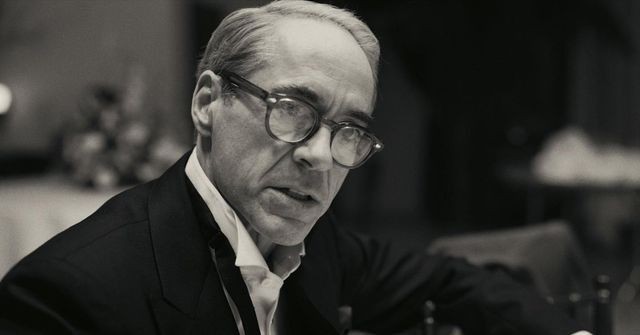
There are some flaws. While it’s not their stories, the female characters could have been delved more deeply. Florence Pugh and Emily Blunt are fantastic (Blunt has a standout scene in particular), but they feel underdeveloped, as do some of the political explorations in the film. There are so many characters in the film that it would benefit the viewer to research beforehand. Many of them are interchangeable and might confuse people. The film rarely stops to explain or clarify precisely what is happening. It’s not impossible to follow like Nolan’s previous film Tenet, but it still could be challenging for viewers. Once again, sound might be an issue for some, though, from a technical standpoint, this is much stronger than other Nolan films (Tenet, parts of the Dark Knight trilogy) when it comes to understanding dialogue.
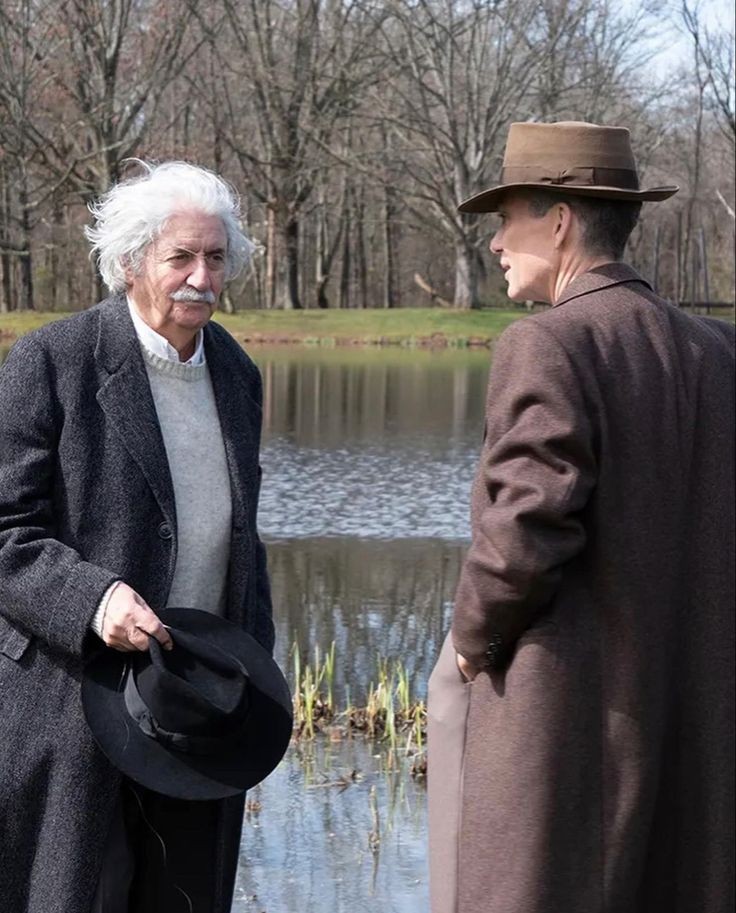
In terms of style, Oppenheimer evokes the approach of Oliver Stone’s JFK by skillfully intertwining crucial historical events and the roles of significant side characters. While it may not produce the same emotional impact as Nolan’s brilliant Interstellar (his best film), the movie triumphs as a character study and a compelling cautionary tale on the perils of pushing science to its limits. The characters from the past express concerns about nervously triggering a catastrophic event, reminding the audience of the ever-present existential threat that could resurface at any moment, as emphasized by Nolan. The film ends on a depressingly sour note as we all must realize the terrible world we’ve created. As we get closer to nuclear war with Russia and China today, Nolan’s Oppenheimer leaves a lasting, disturbing impression.
Those who do not learn from history are doomed to repeat it.
***1/2 out of ****
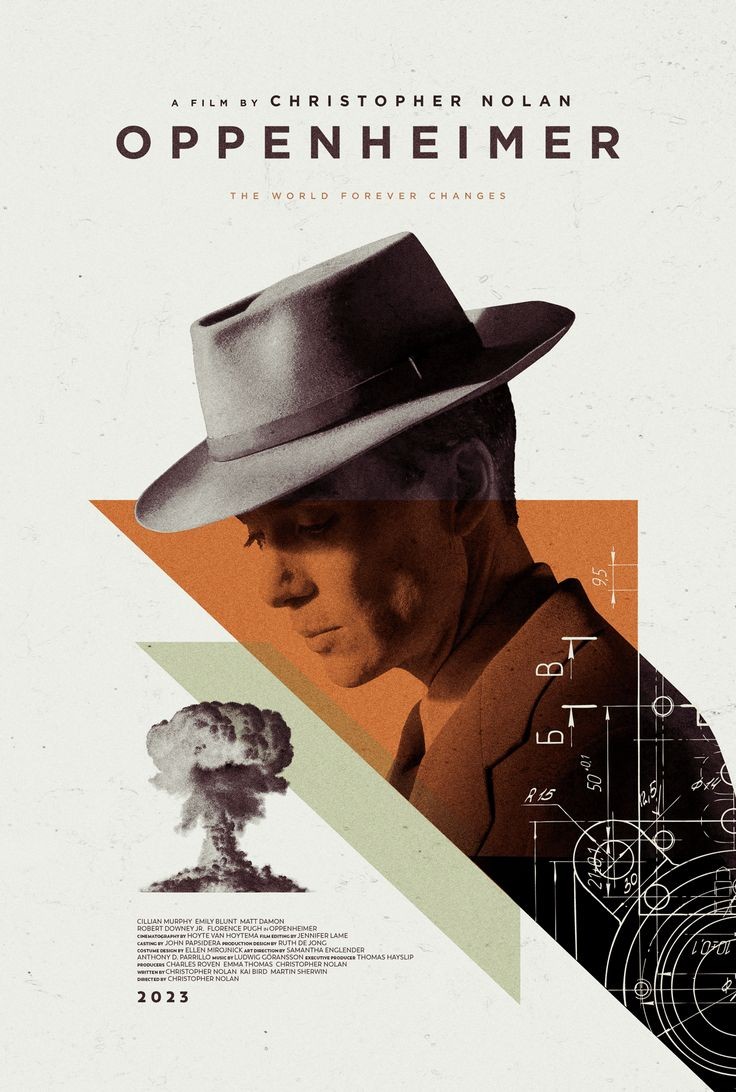
 Movie Finatics The Place for Movie Lovers
Movie Finatics The Place for Movie Lovers
